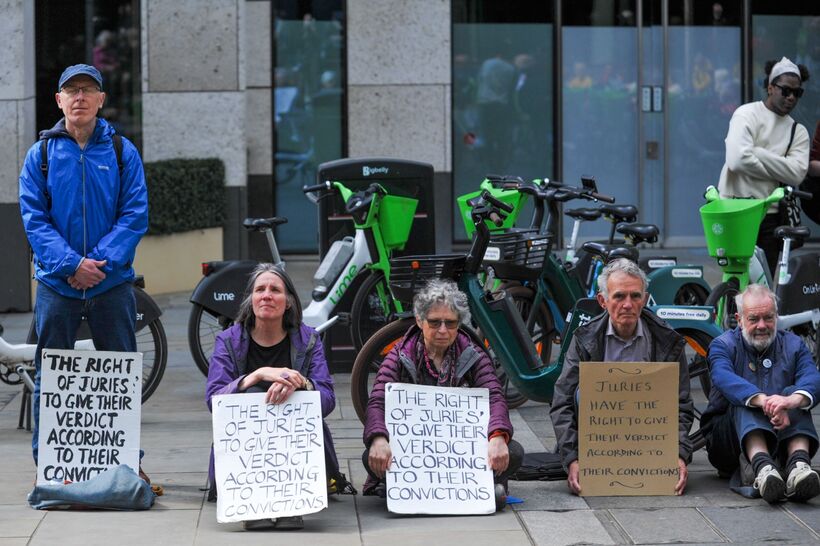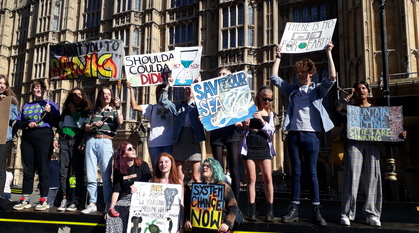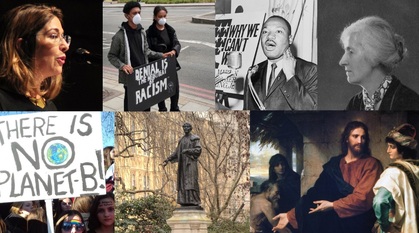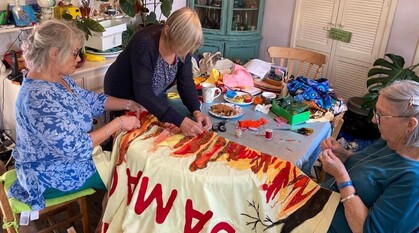Stifling dissent: why the erosion of protest rights should worry us all
Paul Parker reflects on the erosion of protest rights and shares why people who are moved by conscience to break the law should be allowed to explain why in court.

"Respect the laws of the state but let your first loyalty be to God's purposes. If you feel impelled by strong conviction to break the law, search your conscience deeply. Ask your meeting for the prayerful support which will give you strength as a right way becomes clear."
–
Advices & queries 35
What should a good Quaker do, when they can see that something is wrong, but to change it will break the law? Advices & queries 35 acknowledges that sometimes the only way, having tested our conscience carefully with Friends, is to put what love requires of us ahead of what the law desires.
Over the years there have been many examples of Quakers doing just this. Their early refusal to take the oath of allegiance or pay their tithes. Defying the censor to publish anti-war pamphlets during World War I. The many arrests for criminal trespass in the 1980s at Greenham Common. And today the actions of environmental protesters in the face of 21st century climate indifference. So Quakers have their fair share of experience of putting love before the law, always in nonviolent ways.
Breaking the law always has consequences, of course, but recent years have seen a shocking escalation in the punishment the state exacts for nonviolent acts of protest.
Policing of protests
In 2012, Quakers' national body Meeting for Sufferings was already expressing concern about the build-up of repressive policing at peaceful protests. In the years that followed, not just policing but the law itself has been changing in ways that encroach upon individuals' freedom to protest, and thus on Quakers' freedom to follow our spiritual leadings to bring about a peaceful, just and sustainable world. By 2021, Meeting for Sufferings described these changes as "threats to our democracy and civil liberties, … a clear abuse of political power".
Despite the efforts of Quakers amid a coalition of 250 other organisations, the Police, Crime, Sentencing and Courts Act 2022 passed, and gave the police wide powers to arrest protesters, with discretion to impose restrictions and conditions making many protests much riskier. That has led many, including former chief constables, members of the House of Lords and human rights experts, to describe the law as repressive, and to warn of the chilling effect on legitimate dissent. Hot on its heels came the Public Order Act 2023, with further new offences criminalising nonviolent protest tactics, expanded use of stop-and-search powers and banning orders.
Undermining jury rights
Meanwhile, judges in protest cases have been denying defendants the opportunity to appeal to their jury that they were acting from conviction, and thus denying juries their absolute right, established at the Penn and Mead trial to acquit a defendant according to their conscience. And even protesters who have drawn attention to the jury's right, using words taken from a plaque on the wall of the Old Bailey itself, were arrested for their stance.
How can a jury reach a fair verdict in a trial of environmental demonstrators, if they are kept silent, and a judge tells them that "whether or not we are facing the end of the world is neither here nor there"? How can we respect a justice system which handed down lengthy sentences in this trial, criticised already by the UN Rapporteur for Environmental Defenders and described as "not acceptable in a democracy".
Acting on conscience
All this makes it harder for people to follow their convictions and draw attention, often in ways that make governments uncomfortable, to the climate crisis and other injustices. And makes it ever more necessary that Quakers and others who follow their conscience have the support of their communities when they do so.
Early Quakers resisted a system which protected those in power, perpetuated injustice and suppressed nonviolent dissent. The consequences of so doing were harsh. What are we called to do now, at a time which echoes our early history, and facing the urgency of climate heating? How shall we continue to speak our truth to power, as love requires of us? How will we ensure our first loyalty is to God's purposes today?


